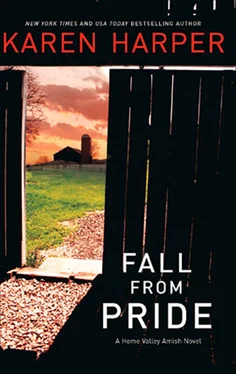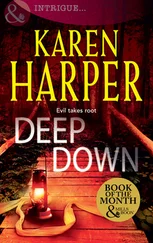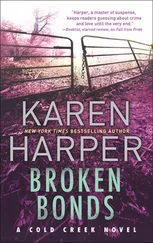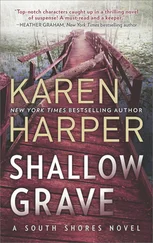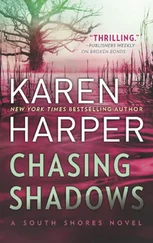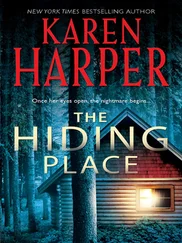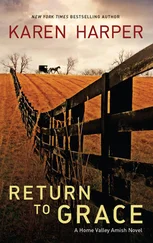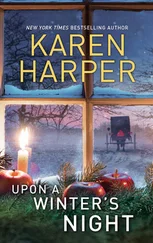“He keeps a lot of Amish employed in businesses he at least owns part of—the Dutch Farm Table, the Buggy Wheel Shop, a bunch of others. But his paper is his pride and joy.”
“Can I show you around VERA?” he offered with a sweep of his hand toward his big, worldly buggy.
“I’d like that, but better not right now. I have to get back. Gabe wants to see it, too, so can we come out later? And, oh, Mamm says come to supper—evening meal, not half the amount we eat midday, in about two hours.”
“Tell her thanks. I’d love to.”
She wanted to throw caution to the sweet breeze that had begun to dry and ruffle his hair and go into the back of VERA with him—it was cozy there, he’d said—but she knew she shouldn’t. She was already too attracted to him, like he had some kind of magnetic field and she was a compass needle.
“Before you go, then,” he said as he walked her back a ways toward the farm, “will you explain the alms fund one of the elders mentioned? It sounds like private Amish insurance, but I thought that was forbidden.” Forbidden, verboten, danced through her mind as she darted another glance up into his intense, blue-sky gaze. Again, she had to unscramble her thoughts to grab for the right thing to say.
“Not forbidden if we keep it within the Amish community,” she explained. “We do not pay into worldly insurance companies or the American government’s Social Security or ever use such funds, because health is a gift from God and that would be gambling against that in a way. But we do collect a percentage of everyone’s wages on a regular basis and use that to support those in the group who have big medical bills—or something like a house or barn burned. The church deacon collects and puts the money in a savings account until we need it. No big corporations profit. The family in need does pay a small part of their bills first, before our fund is used.”
“Like a deductible,” he said, nodding. “It’s really a private, small group insurance. Very smart—amazing…” He looked at her closely and he drew out the last word so it almost sounded like Ray-Lynn’s drawl. His gaze caressed her as he peered within the dim shelter of her black bonnet.
“I’ve got to get back,” she said, quickening her steps. “See you for supper and then Gabe and I can take a look at VERA later, if it’s okay.”
She didn’t want to seem like she was running away, but in a way she was. Standing so close to him, both of them in their bare feet, had made her think of Adam and Eve in the Garden, and look at all the trouble they’d got into!
If the bountiful Amish evening meal was what Sarah described as less food, Nate was as astonished by that as he was by his crazy attraction to her. It was probably just the fact she was so different from any woman he’d ever known, he tried to tell himself—bright but naive, stubborn yet humble, plain yet stunning, modest yet sexy without even trying. Man, he had to keep his mind on the food and the conversation, because her father, Ben Kauffman, had been drilling him about some things and here came another calmly couched but key question. At least he’d waited for this one until they were on the coffee and fabulous strawberry shortcake with home-churned vanilla ice cream. How Nate could put this dessert away after chowing down on sauerbraten, homemade bread, German potato salad and noodles with gravy, he wasn’t sure, but maybe he was about to pay the price for this great meal.
“So far, Mr. MacKenzie,” Ben Kauffman said, “have you found any proof, even hints, that the barn burning might be someone upset by Sarah’s painted quilt square?”
“No, sir, I haven’t. But it’s something I’ve considered and will stay aware of. I realize that such a work of art is to be useful—not just decoration.”
“In that case,” Ben Kauffman went on, “I will allow—ask—Sarah to paint a square for our barn. I ran it by Bishop Esh. I want to stand up for the earlier decision that she be allowed to paint her patterns on Home Valley barns to bring more visitors in. Amish businesses are slow. Orders for my gazebos, kids’ playhouses, birdhouses and other items are down. And I want everyone to know that I believe her painting was not and should not be a target of arson.”
Nate could see Sarah was surprised and elated. Her amber eyes filled with tears she blinked back. “Danki, Daad,” she said. Darn, Nate thought, if he wasn’t actually catching on to some of the German they used. Sadly, he hadn’t been able to speak to her elderly grandmother at all. She rarely spoke English anymore, and seemed pretty afraid of him, not to mention confused about things. She sat at the other end of the table, eating, but with her eyes on him as if he might leap at her. Sarah had introduced them, then whispered something to the old lady about him being here to help and that he could be trusted. Also at the table were Sarah’s mother, Anna, Gabe and Martha.
It really impressed him how the Amish generations stuck together. When he’d lost his parents in the tragedy, how he’d wished he’d had a grandparent or even an aunt and uncle to take him in. At least his childless neighbors down the street, Jim and Mary Ellen Bosley, had been willing to give him a foster home. But living so close to where it all happened had been hard. In a way, that empty lot where what people called “the death house” had sat haunted him all through his youth—and yet today.
“I’ll have to replace my ladders,” Sarah said.
“While you paint here, you can use the barn one and only buy one,” her father said. “And those planks for the long tables you can stand on.”
“I have a ladder in my truck Sarah can use,” Nate offered, “at least while I’m here. And a safer scaffolding than planks—if you don’t mind the suggestion. I won’t need them—unless there’s another blaze to investigate, and I hope not.”
“We pray not,” Anna Kauffman said.
“If the man in black comes back, there will be more fires.” The old lady spoke for the first time and in English. “I heard Sarah tell Martha the fire burned the barn like a beast devouring it. That’s what it will be like again if that monster keeps sneaking around my house at night.”
Nate could see Sarah was embarrassed by the outburst. “If you mean Nate here,” Sarah said, leaning toward the woman and taking her hand, “he’s only in the neighborhood for a while to help. And maybe you just dreamed the man in black.”
“No, I saw him with his horrible, glowing eyes when I got up to go to the bathroom. Ya, I did!”
Sarah’s parents just looked at each other as Sarah helped the old woman away from the table. She was obviously demented. On the other hand, if she had seen someone, Nate wondered who, because it hadn’t been him.
Ray-Lynn knew Peter Clawson was a bit of a loner, but she couldn’t argue his generosity to others. Whether it was large tips for her Amish waitresses or his funding of local businesses, the man was magnanimous to a fault. And, if she thought she managed to catch all the local gossip, she was a rank amateur compared to Peter, who seemed to know almost everything about everyone. Why, if it wouldn’t be frowned on around here, he’d probably run something called the Home Valley Enquirer. She sometimes shuddered to think that he probably knew what kind of toilet paper she used at her house, though at least she’d stopped his just dropping in.
“I suppose you’re really going to talk up the Saturday auction to benefit the barn raising,” she said to him as she rang up his evening meal at the cash register.
“If not talk up, print up. You bet I will,” he said. “And not only for a broader distribution of the paper. The regular Thursday edition will have a full-page spread on it. The layout is already done. Lots of folks far and wide will come in for Amish goods at an auction, especially the cooking and the quilts.”
Читать дальше
